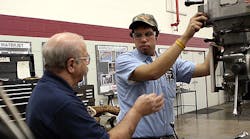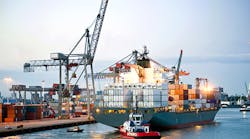Election season is over so it would be nice to think all the arguments are settled. But the great debate of our time, the one that animates all the others that we believe are so critical, endures. It’s not health insurance or carbon emissions or tax deductions, though each of those contains a hint of what really matters. The great debate of our time is about wealth, or rather our lack of it.
If that seems too crass then consider that the issue of our time is freedom, because the two are inextricable. Wealth gives us freedom from the stresses and anxieties of life (and if you doubt this I wonder what you’ve been doing for the past two years), and freedom allows us to pursue wealth in the way that we wish.
This link from wealth to freedom is so plain to me that I’m shocked every time I read credible figures in business and government engage the notion that free trade and free markets are pass, and even dangerous ideals in the global economy. And yet, for over a decade that viewpoint has been pushed and policies have been promoted, as though we might simply discontinue the principles and practices that have shaped 300 years of civilization.
What we know as free-market economics can be traced to Adam Smith, the 18th Century moral philosopher whose greatest work, The Wealth of Nations, explains how commercial markets have innate energy that rewards individuals, promotes general prosperity, and advances social order and equality. Smith’s insights were extended later by economist David Ricardo, who established the tenets we know as “free trade” by demonstrating how it is advantageous for individuals, communities, and ultimately nations to specialize in the things they do best and rely on others to sell them the other things they need.
Ricardo showed that commerce can sustain civilization because humans adapt to improve their circumstances, and that given the freedom to do so they will instinctively choose the activities that make them more secure and prosperous, without threatening their trading partners because of their mutual interest. He also showed that capital, being mobile, unites distant trading partners, laying the basis for long-term progress and stability.
It’s not perfect. Competition carries the inevitability of losses, and it can be threatening to individuals’ sense of security. There are always attempts to beat the system, (monopolies were common in the 19th Century; managed economies tried it in the 20th Century.) For the past 20 years the rise of a global industrial market has increased individuals’ anxiety and given a new rationale to the free-trade apostates.
They sense the U.S. is growing poorer as other nations grow wealthier, by exploiting their natural resources and their labor forces to build wealth, mainly from consumers in the more scrupulous nations. They see workers in North America and Europe losing their livelihoods because their employers cannot maintain the new global standard.
And from this they conclude that our principles must be wrong. They insist that global free trade is unsustainable because the world’s large trading nations are unequal in terms of resources, assets, and labor costs, and that capital does not move effectively among the different partners. The solution, they insist, is a more sophisticated system of trade barriers that will limit investors and consumers choices.
Basically, what the free-trade doubters want is security from the stress of competition. Whether they know it or not, they are offering to trade freedom for that security. They see the rising economic influence of China or India and assume that laws and regulations can shield them from losses. They don’t see how a thicket of existing laws and regulations already hinder their competitiveness, or how laws and regulations in other countries weaken growth prospects there. They value security over opportunity, apparently confident that they can stabilize the global market well enough to regain the advantages they’ve lost.
What they do not see is that free-market principles and free-trade policies merely express the ingenuity that exists in human nature. By restraining that ingenuity, by limiting choices or restricting opportunities, our potential for growth, for wealth and security, is compromised.
Finally, a note of apology to all readers for the errors in our September presentation of the members of the FM&T Hall of Honor, and specifically to George Booth, Robert W. Eck and Parker Stroom, for any confusion or embarrassment caused by their listings. We regret our mistakes, but we very much appreciate the attention of so many readers who contacted us to report the errors. The corrected list is available online now.










